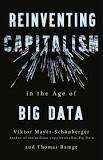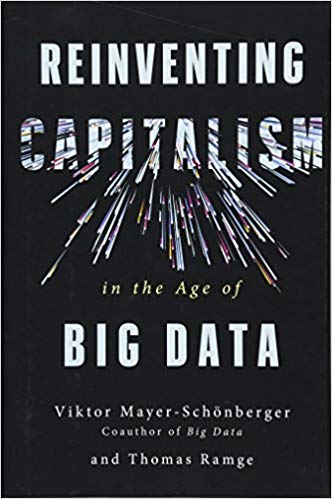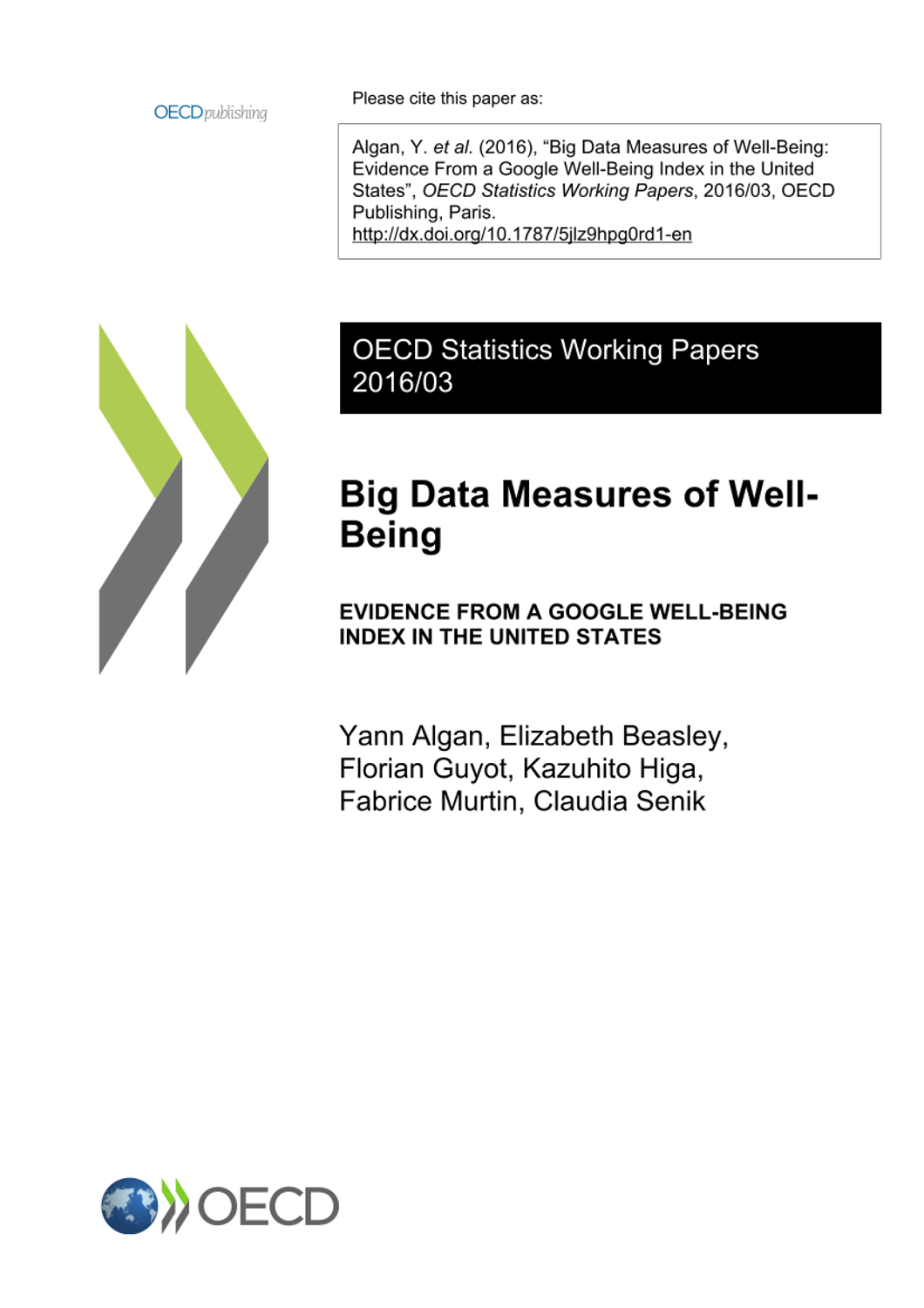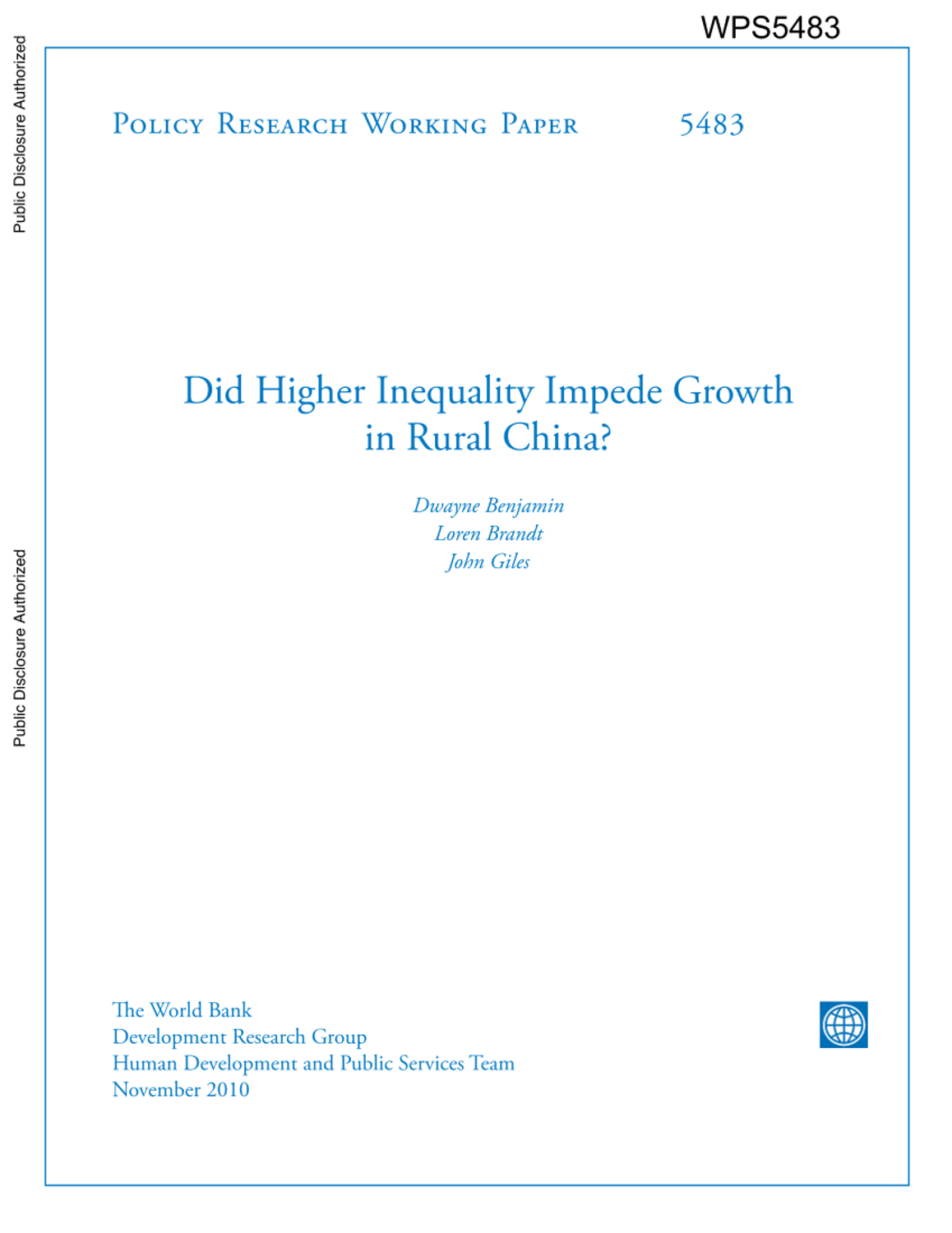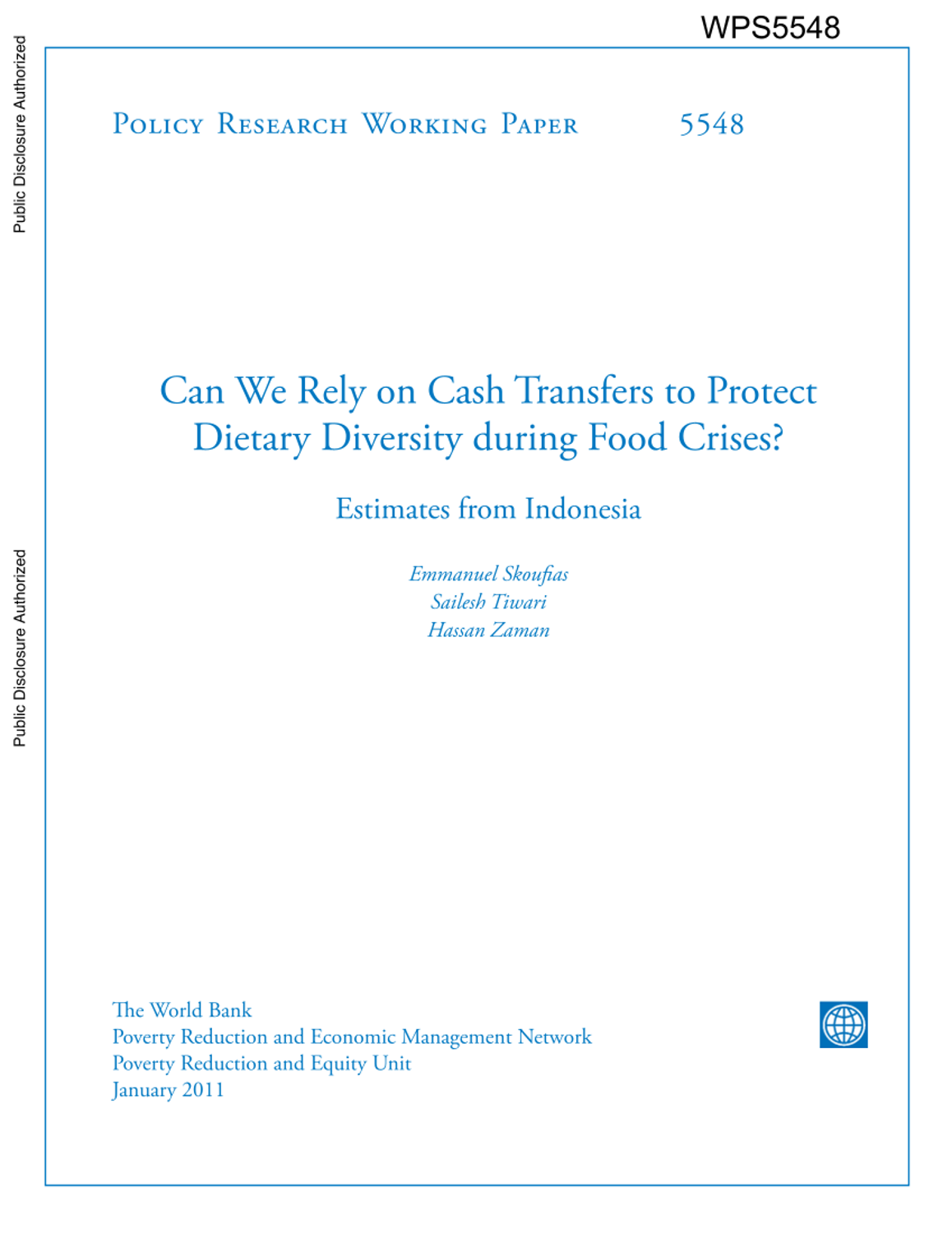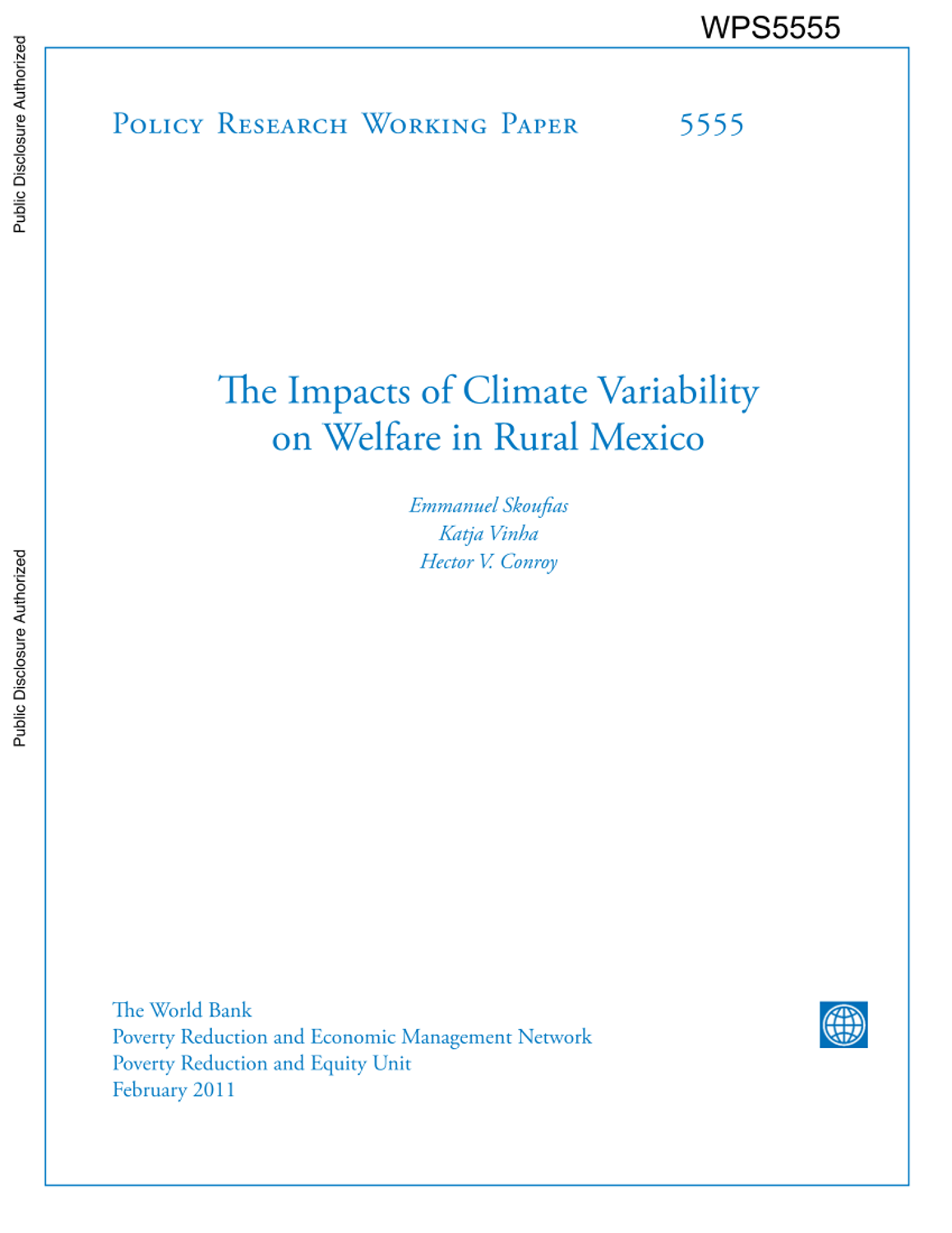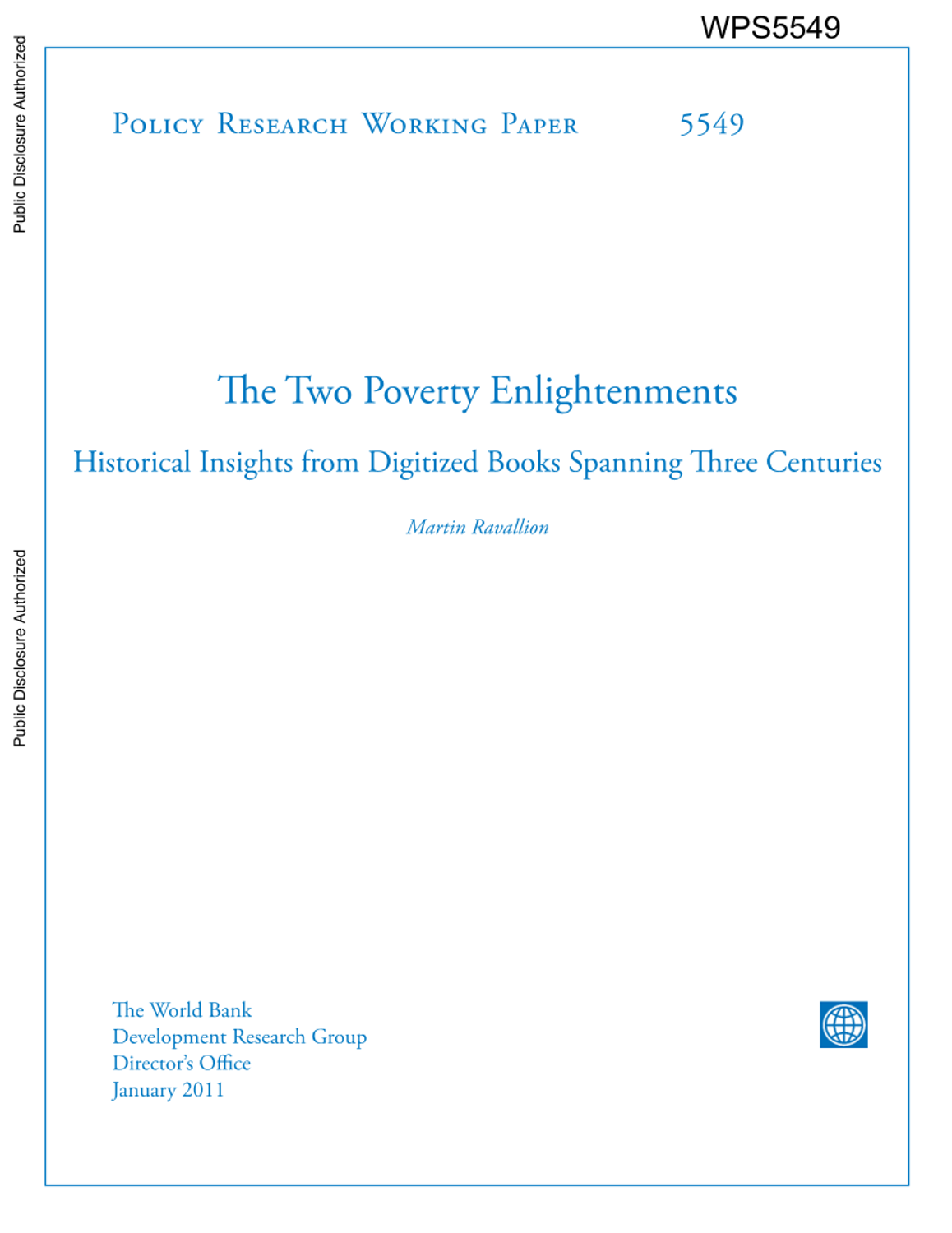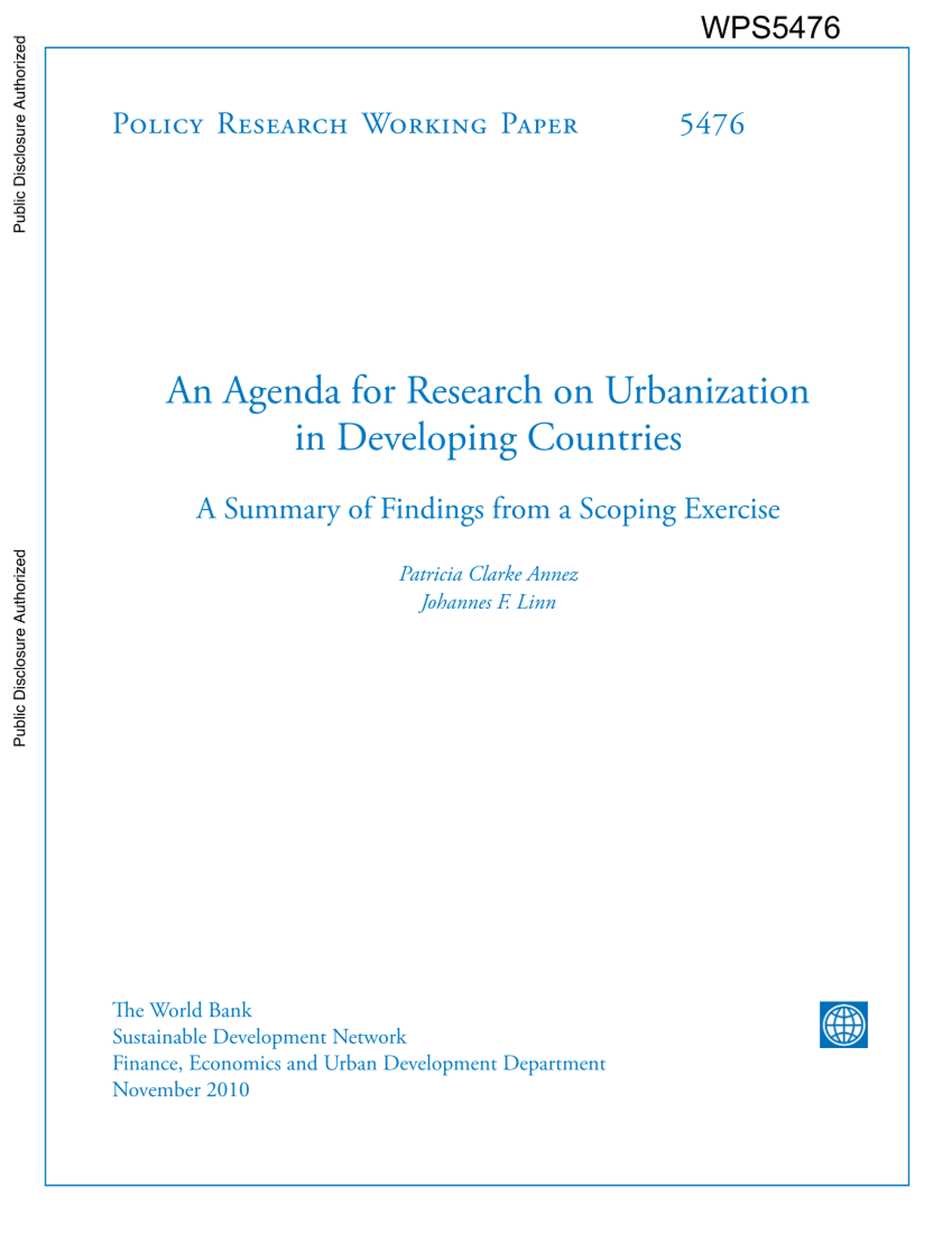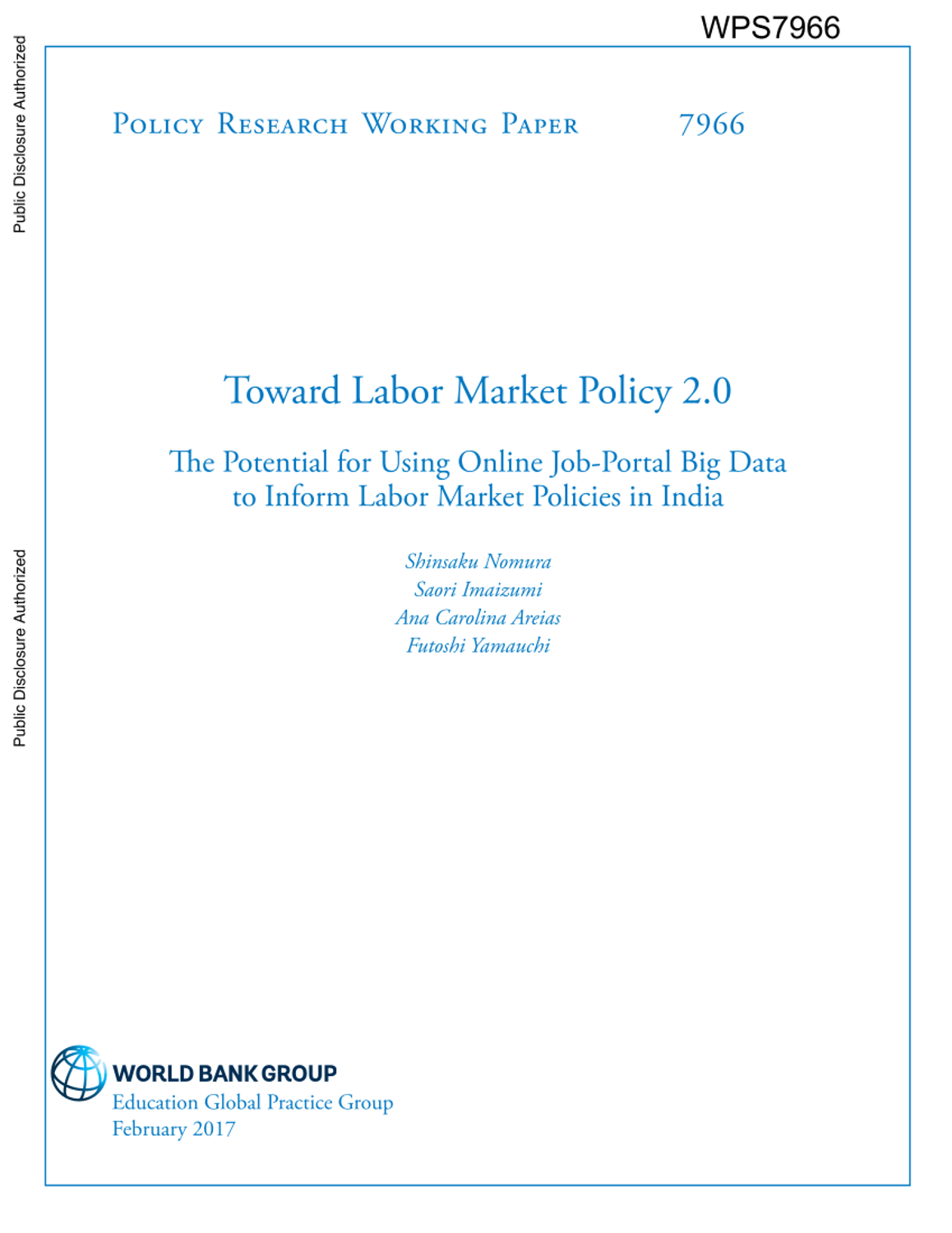
연구보고서World Bank Policy Research Working Paper 7966
Toward labor market policy 2.0: the potential for using online job-portal big data to inform labor market policies in India
- 청구기호
- WPS 7966
- 발행사항
- Washington, D.C. : World Bank, 2017
- 형태사항
- 36 p. :. PDF file ;. 856 KB
- 바로가기
소장정보
| 위치 | 등록번호 | 청구기호 / 출력 | 상태 | 반납예정일 |
|---|---|---|---|---|
이용 가능 (1) | ||||
| E0002432 | 대출가능 | - | ||
이용 가능 (1)
- 등록번호
- E0002432
- 상태/반납예정일
- 대출가능
- -
- 위치/청구기호(출력)
책 소개
Economists and other social scientists are increasingly using big data analytics to address longstanding economic questions and complement existing information sources. Big data produced by online platforms can yield a wealth of diverse, highly granular, multidimensional information with a variety of potential applications. This paper examines how online job-portal data can be used as a basis for policy-relevant research in the fields of labor economics and workforce skills development, through an empirical analysis of information generated by Babajob, an online Indian job portal. The analysis highlights five key areas where online job-portal data can contribute to the development of labor market policies and analytical knowledge: (i) labor market monitoring and analysis; (ii) assessing demand for workforce skills; (iii) observing job-search behavior and improving skills matching; (iv) predictive analysis of skills demand; and (v) experimental studies. The unique nature of the data produced by online job-search portals allows for the application of diverse analytical methodologies, including descriptive data analysis, time-series analysis, text analysis, predictive analysis, and transactional data analysis. This paper is intended to contribute to the academic literature and the development of public policies. It contributes to the literature on labor economics through application of big data analytics to real-world data. The analysis also provides a unique case study on labor market data analytics in a developing-country context in South Asia. Finally, the report examines the potential for using big data to improve the design and implementation of labor market policies and promote demand-driven skills development.

